Think
True or false? The worst mistakes in historical series
Gabriel Garza and Javier Martínez, students of the 2nd year of the Degree in History + diploma in Archaeology
and authors of the Instagram account @morrior_invictusmake a sharp critique in which they bring to light the horrors
to light the horrors errors in three popularly known historical series.
Many of us watch series from a certain historical period to understand or get an idea of what life was like at that time: from the secret lives of colourful characters, to the mentalities of different societies, to the various conflicts that marked a before and after on the world's geopolitical chessboard.
Unfortunately, the work of historians, a fundamental part of the production of these series, is often conspicuous by its absence. Often, serious historical errors are made due to a lack of knowledge or for the sake of generating more entertainment.
For this reason, with the firm intention of rescuing historical rigour, purpose , we are going to expose the worst mistakes (and also the successes) of three world-famous series.
ROME
The series Rome narrates the events that took place between the siege of Alesia (52 BC), carried out by Caesarian troops against the Gauls led by Vercingetorix, and the moment when Octavian Augustus defeated framework Antony (31 BC).
The first season tells the story of Julius Caesar's triumph in Gaul, his conflicts with the Senate and the events leading up to his assassination on the Ides of March 44 BC. The second season tells the story of the turbulent transition period after the death of the "tyrant" until the victory of Octavian (the future Augustus) over framework Antony and his subsequent suicide along with that of Cleopatra.
Senatus Populusque Romanus
The series is promising and in some cases accurate to what the city of Rome is believed to have looked like. It depicts different types of houses, different materials, street paintings, shouting in the marketplace and meetings of the Roman Senate to discuss the various problems of the Republic.
To a large extent, these incredible recreations were made possible by a huge budget: £62.7 million for the first twelve episodes alone. Although during the second season the budget remained the same, the audience declined considerably and the series had to be cancelled.
But where is Octavio?
In spite of its scenic backdrops, not everything in Rome has the necessary historical rigour. For example, there are facts and data that have been changed for fictitious ones because, in the words of Jonathan Stamp, producer and historical advisor , "we were looking for authenticity and not accuracy".
Some of these flaws include Octavian' s presence in the city of Rome during the assassination of his great-uncle Julius Caesar, when he was actually in Illyria. Also, the future emperor's mother, Atia, died around 43 BC, whereas in the series she appears "in the flesh" at her son's triumphal parade after the death of framework Antony.
To give other examples, the famous framework June Brutus was actually married and his mother, Servilia, died a natural death rather than committing suicide and cursing Atia in full public view .
Rome... naked
On the other hand, in practically every episode of the series, there are sex scenes which, although they add a degree of realism, are excessive in a historical series. The quantity of these subject scenes often ends up diverting the audience's attention.
It is clear that this so-called "historical" series is more about entertainment and extravagance than the reality of historical events. While there is no doubt that HBO and the BBC had an entourage of historians at their disposal for the making of Rome, one wonders whether the errors are the result of omission or premeditated negligence.

KNIGHTFALL
The Knightfall series recounts the events between the loss of Acre, the last Templar stronghold in the Holy Land, in 1291, and the demise of the Order, brought about by the French King Philip IV in 1307 - the crown owed so much money to the Order that the monarch conspired to destroy it.
The series takes us 15 years after the fall of Acre, along with group of Templars living in Paris, in the Tower of the Temple. The protagonist is Landry, a Templar knight who, fed up with the Order's inertia, fights to recover the Holy Land and continue his quest for the Holy Grail.
Recreations: between myth and reality
The first chapters of the series show great promise. The magnificent recreation of the city of Acre and its siege augur a production of great historical rigour. However, as the series progresses, the audiovisual aspects become more important than the significance of the events themselves.
On the other hand, the battle scenes leave much to be desired. Without going into the military tactics of the Templars, nor their fighting style, the depictions of warfare are rather archaic in the cinematic sense.
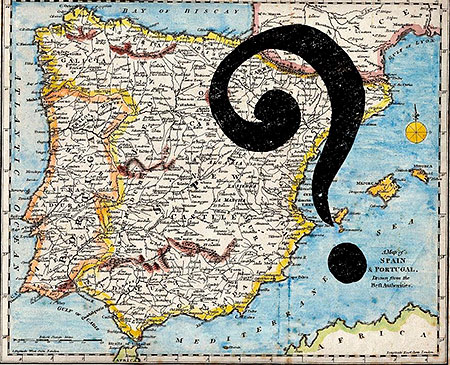
Kingdom of Catalonia Aragon
There are such unpleasant mistakes as calling the Kingdom of Aragon the Kingdom of Catalonia. This historical error is too big to go unnoticed, since Catalonia was never a kingdom, but, at most, counties.
Moreover, even in the dubbing of the series into Spanish, they had to correct the dialogue and change the fictitious Kingdom of Catalonia for the historically correct Kingdom of Aragon. Unfortunately, the series carries this serious flaw throughout the season.
Medieval kings and queens
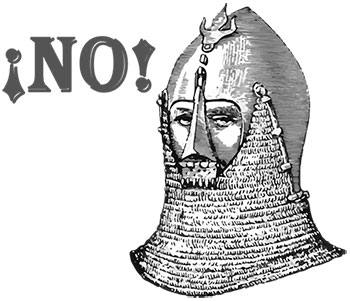 In addition to all this, the whole plot revolves around the Queen Joanna I of Navarre. They greatly clouded the life of this queen, staff , as they used her bedroom slips as a reason for the subsequent dissolution of the Order. This is an unacceptable error, as there are several sources in which he is portrayed as a powerful and romantic figure.
In addition to all this, the whole plot revolves around the Queen Joanna I of Navarre. They greatly clouded the life of this queen, staff , as they used her bedroom slips as a reason for the subsequent dissolution of the Order. This is an unacceptable error, as there are several sources in which he is portrayed as a powerful and romantic figure.
In general, all the characters are very poorly portrayed historically, whether the aforementioned Queen Joan, Philip IV or Jacques de Molay, the Grand Master of the Order of the Temple. Rather than a historically accurate series, Knightfall could be summed up as a mediocre explanation of why the Templars were destroyed.
As a curiosity, I would like to highlight the nomination that the first season received at the Saturn Awards. The fact that, instead of competing as a historical series, it was nominated for best fantasy series shows the direction the series finally took.
ISABEL
There are some series that triumph because of their historical rigour. The best example is Isabel, a Spanish series that tells us the life of one of the great monarchs of our country: Isabel I of Trastámara ("La Católica").
The series has three seasons with a total of 39 episodes that cover the life of this Castilian queen: her adolescence in Arévalo, the bloody civil war against the supporters of Juana La Beltraneja, the conquest of the Kingdom of Granada and the finding of America.
The historical advisory service received by the series was undoubtedly an example to follow. The documentary sources were treated with special care in the script and the characterisation of the historical characters. Nothing in this series seems to have been a victim of chance.
There are some historical errors such as the romance between Muley Hacén and Zoraida (they met before what the series says), the incorrect attribution of works to the butler Gonzalo Chacón, military decorations that did not exist at the time, and the appearance of the cathedral of Cádiz in 1493. However, apart from these points and a few others, it is one of the best series from a historical point of view.
For example, Ricardo Guerra, a historian specialising in the figure of the Catholic Queen, states that in the series there is "neither a pink legend nor a black legend. Isabel has shown neither the sweetened romance that has always been sold to us about the Catholic kings nor the cruel vision that their enemies had of them".
It is therefore a series that, despite its negative aspects, has managed to surprise more than one academic with its rigorous historical value. Even the producers themselves have come to regret some of the mistakes made.
HISTORICAL THERMOMETER
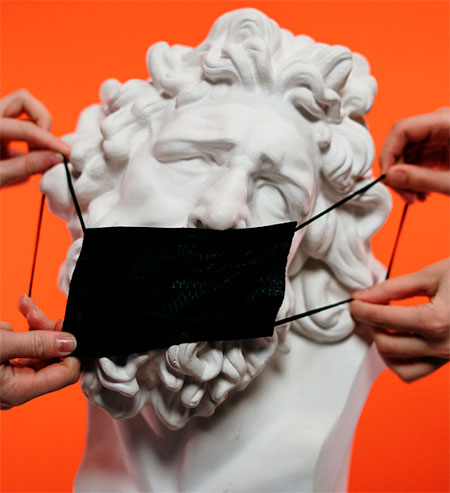
Series, films and video games have become a mass medium for the dissemination of historical facts. It is no mere coincidence that an increasing issue of historians are working as consultants in companies oriented towards the entertainment sector.
However, history is more than a source for the creation of fiction. The historical discipline can, and indeed often does, shape the understanding of the past and determine the thinking of the present. One need only look at its misuse in the political sphere.
The importance of the historical discipline on entertainment platforms is indisputable. Our work is essential to develop a critical attitude towards the facts of the past and to ensure that they do not become mere fictional embellishments or, worse, tools of manipulation.






